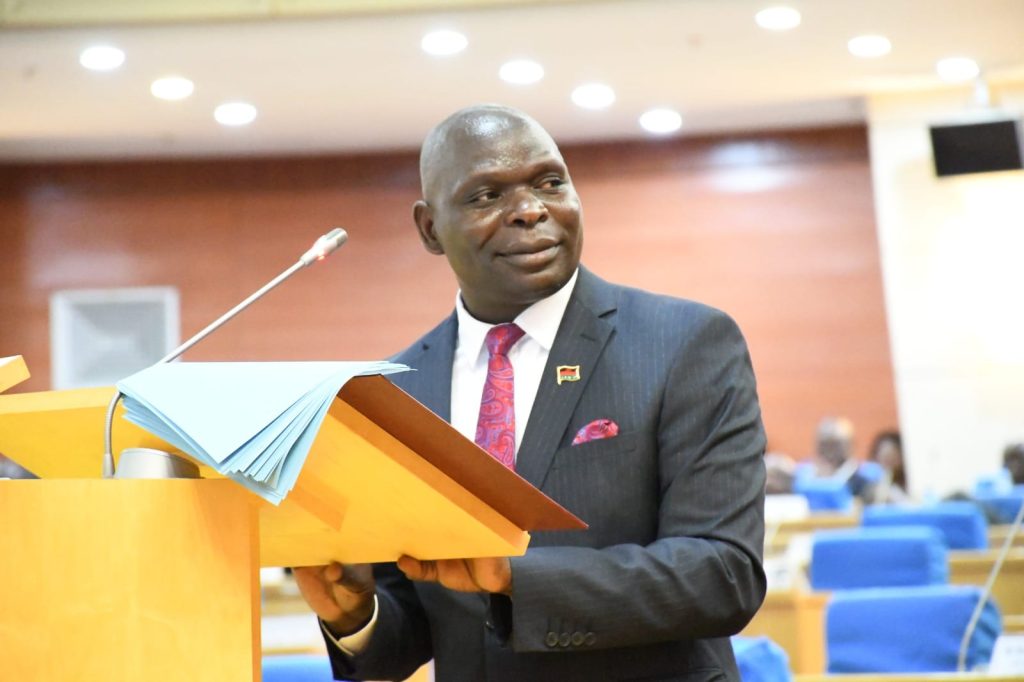Fingers crossed ahead of budget
Minister of Finance and Economic Affairs Simplex Chithyola Banda is the man to watch today as he unveils the proposed 2024/25 National Budget amid expectations from Malawians hoping for relief in the tough economic environment.
This will be his maiden full fiscal plan having presented a Mid-Year Budget Review Statement on November 17 2023 after replacing his predecessor Sosten Gwengwe.

During pre-budget consultation meetings, stakeholders gave their input and in random interviews yesterday they said their expect the financial plan to incorporate their input and align with President Lazarus Chakwera’s State of the Nation Address (Sona) delivered in Parliament on February 9 this year.
The Sona received positive feedback for its alignment with Malawi 2063, the long-term development strategy that seeks to transform the country into a self-reliant, middle-income and inclusively wealthy nation with agriculture, tourism and mining strategy as government’s priority areas.
Chithyola Banda has consulted widely in the formulation of the fiscal plan with a last round of consultations with Parliament’s Budget and Finance Committee and civil society organisations taking place six days ago.
In an interview yesterday, Mwapata Institute executive director William Chadza said they expect to see a major shift in the allocation of resources towards productive sectors in agriculture.
He said with the agriculture commercialisation agenda in high gear, he expects a cut of not less than 25 percent from the Affordable Inputs Programme (AIP) budget to support medium-scale farmers with potential to embark on commercial farming.
Said Chadza: “From a financial allocation point of view, we hope that we will begin to see some actions in terms of reforms in the agriculture sector such as the reduction in AIP budget and re-allocation of resources to productive programmes within the same sector.
“This should include irrigation and climate resilient agricultural interventions. We can start with 25 percent this year and move to 50 percent so that we have a smooth exit strategy because we cannot just phase out AIP abruptly.”
The Economics Associations of Malawi (Ecama), in its submission during pre-budget consultations in Lilongwe on January 10, proposed a reduction by K50 billion in the AIP budget to be invested in megafarms.
The association also asked government to strengthen climate-smart agriculture investment in view of recurrent dry spells that threaten agricultural output.
Ecama further wants to see more incentives on megafarm initiatives such as allowing those with megafarms to import a maximum of five tractors duty free.
On its part, Malawi Confederation of Chambers of Commerce and Industry said it is looking forward to a financial plan which prioritises manufacturing.
Reads the chamber’s input to Treasury: “Government should come up with an Industrial Development Fund to provide capital specifically targeting investments in the manufacturing sector.
“The maximum demand tariff should be applicable when businesses are operating at their maximum capacities and that government provides tax incentives to manufacturing and processing industries that use a substantial portion of local inputs in their production for them to have comparative as well as save forex.”
On its part, the Bankers Association of Malawi called for the need to reduce import duty on gadgets that promote financial inclusion such as point of sale machines, basic handset phones and know-your-customer gadgets, arguing that “financial inclusion is a key enabler to reducing poverty and boosting prosperity”.
During the last round of consultations in Mponela, Dowa District on Saturday, Budget and Finance Committee of Parliament chairperson Gladys Ganda proposed that government should come up with a realistic whose budget expenditure in line with projected revenue.
She also said the development budget allocation should be increased to spur economic growth.
In an interview yesterday, Chithyola Banda said his team has carefully considered the input.
He said: “There are six signals showing that the economy is recovering these are the availability of fuel, forex, lowering of maize prices which impact on food inflation, clinching of the International Monetary Fund Extended Credit Facility, resumption of direct budget support, and inflow of forex boosted by the labour export deal with Israel.”
Stakeholders in sectors of education, health and infrastructure development equally lobbied for increased allocations.
However, the growing needs come against a background of dwindling revenue collections as the economy remains on a slow recovery path.
Malawi’s financial year runs from April 1 to March 31.





